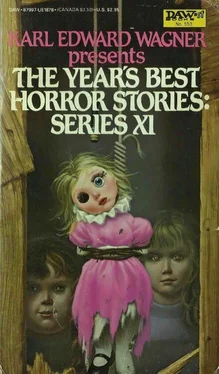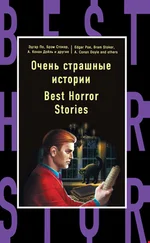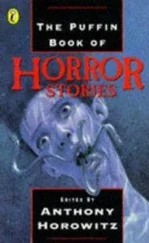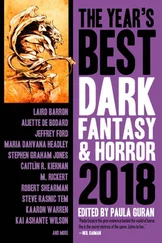THE YEAR’S BEST HORROR STORIES XI
Edited by Karl Edward Wagner
…whether hoax or conspiracy, the motives as much in conjecture as the means; but we must treat with the realities, despite what we are meant to believe: James Dean has been recognized strolling along North Beverly Glen Boulevard, secure behind beard and sunglasses (need I say it: Porsche) and the certainty of our disbelief.
—Kent Allard,
Drive-Thru Fiction
“Horror is enjoying a period of unparalleled popularity. Horror novels regularly make the bestseller lists. Horror films, whether big budget or bargain basement, rake in the bucks. In short fiction, the horror genre continues to prosper and develop, as older writers perfect their art and new writers come along to lead the genre in new directions.
“Horror stories have a way of springing up everywhere—not just in science fiction/fantasy magazines and anthologies, but in amateur publications and in any sort of periodical that might publish fiction. Trying to read all the horror stories published during each year and then select the best of them is no easy task. You are holding the result of a year’s reading and selecting.”
—The Editor

The Grab by Richard Laymon. Copyright © 1981 by Montcalm Publishing Corporation for Gallery , January 1982. Reprinted by permission of the author.
The Show Goes On by Ramsey Campbell. Copyright © 1982 by Ramsey Campbell for Dark Companions. Reprinted by permission of the author.
The House at Evening by Frances Garfield. Copyright © 1982 by Stuart David Schiff for Whispers No. 15-16. Reprinted by permission of the author.
I Hae Dream’d a Dreary Dream by John Alfred Taylor. Copyright © 1981 by Michael Ambrose for The Argonaut #8. Reprinted by permission of the author.
Deathtracks by Dennis Etchison. Copyright © 1982 by Stuart David Schiff for Death. Reprinted by permission of the author.
Come, Follow! by Sheila Hodgson. Copyright © 1982 by Rosemary Pardoe for Ghosts & Scholars 4. Reprinted by permission of the author.
The Smell of Cherries by Jeffrey Goddin. Copyright © 1982 by TZ Publications, Inc. for Rod Serling’s The Twilight Zone Magazine, November 1982. Reprinted by permission of the author.
A Posthumous Bequest by David Campton. Copyright © 1982 by Stuart David Schiff for Whispers No. 17-18. Reprinted by permission of the author.
Slippage by Michael Kube-McDowell. Copyright © 1982 by TZ Publications, Inc. for Rod Serling’s The Twilight Zone Magazine, August 1982. Reprinted by permission of the author.
The Executor by David G. Rowlands. Copyright © 1982 by Rosemary Pardoe for Ghosts & Scholars 4. Reprinted by permission of the author.
Mrs. Halfbooger’s Basement by Lawrence C. Connolly. Copyright © 1982 by TZ Publications, Inc. for Rod Serling ’ s The Twilight Zone Magazine, June 1982. Reprinted by permission of the author.
Rouse Him Not by Manly Wade Wellman. Copyright © 1982 by Manly Wade Wellman for Kadath No. 5. Reprinted by permission of the author.
Spare the Child by Thomas F. Monteleone. Copyright © 1981 by Thomas Monteleone for The Magazine of Fantasy and Science Fiction, January 1982. Reprinted by permission of the author.
The New Rays by M. John Harrison. Copyright © 1982 by Interzone for Interzone, Spring 1982. Reprinted by permission of the author.
Cruising by Donald Tyson. Copyright © 1982 by TZ Publications, Inc. for Rod Serling ’ s The Twilight Zone Magazine, September 1982. Reprinted by permission of the author.
The Depths by Ramsey Campbell. Copyright © 1982 by Ramsey Campbell for Dark Companions. Reprinted by permission of the author.
Pumpkin Head by Al Sarrantonio. Copyright © 1982 by Al Sarrantonio for Terrors. Reprinted by permission of the author.
INTRODUCTION
One from the Vault
While in the process of preparing my notes for The Year’s Best Horror stories: Series XI, I read my way through all 29 issues of the classic E.C. horror comic book, The Vault of Horror. No, not the originals, some of which are literally worth their weight in gold, but the awesome five-volume hardcover boxed set published this past year by Russ Cochran. Cochran’s production values are mind-boggling: the facsimile edition is larger than the original comic pages, reprinted (from the original art, I gather) in black and white on heavy stock (the boxed set weighs some seven pounds) with all covers reproduced in full color, and pertinent commentary accompanying each issue. Truly a labor of love, and intended to last for centuries. Further, this is but one such boxed set out of a continuing project to reprint all the E.C. New Trend and New Direction comic books in this permanent format.
Why all this attention lavished upon a comic book? For any of several good reasons. The E.C. magazines were special. Just as the (at the time equally denigrated) pulp magazine, Weird Tales, was state-of-the-art horror during the 1930s, so were the E.C. horror comics in the early 1950s. Plots as a rule followed the formula of poetic justice through supernatural retribution, often served up with a dose of black humor and inevitably with lots of grue and gore. By 1955 pressure from outraged citizens’ groups, who had positively linked such comic books to juvenile delinquency, moral decay and communism, brought an end to the E.C. horror comics and their less sophisticated but equally gruesome imitators. Fortunately, not before the young minds of many of today’s horror writers (your editor included) had been hopelessly warped.
Where, I hear you ask, might one discover state-of-the-art horror of the 1980s? As the Vault-Keeper would have said: “Heh, heh! Well, kiddies! Welcome to the terror-dripping pages of the latest fright-filled issues of The Year ’ s Best Horror Stories !”
Three decades later, horror is still alive and creeping—if anything, enjoying a period of unparalleled popularity. Horror novels regularly make the best-seller lists. Horror films, whether big budget or bargain basement, rake in the bucks. Interestingly, one of this past year’s top-grossing films was Creepshow, George Romero and Stephen King’s homage to the old E.C. horror comics. In short fiction, despite the continuing absence of a regular major market, the horror genre continues to prosper and develop, as older writers perfect their art and new writers come along to lead the genre in new directions.
Horror stories have a way of springing up everywhere—not just in science fiction/fantasy magazines and anthologies, but in amateur publications and in any sort of periodical that might publish fiction: from The New Yorker to Easy Rider, High Times to Running Times, Rocky Mountain Magazine to Gallery, Mike Shayne Mystery Magazine to Harper’s, Ms. to Hustler. Trying to read all the horror stories published during each year and then select the best of them is no easy task. You are holding the result of a year’s reading and selecting. Here is state-of-the-art horror fiction from 1982: The Year’s Best Horror Stones: Series XI.
The big news of 1982 for horror/fantasy fans was that Twilight Zone Magazine treated us to twelve consecutive monthly issues. Starting on a monthly schedule in April of the previous year, Twilight Zone Magazine’s accomplishment at a time when most new science fiction/fantasy magazines rarely last half a dozen issues cannot be overpraised. Much of its success is due to the excellent work of editor T.E.D. Klein (himself one of the leading writers in the field), who manages to cram a surprising number of fine stories into each issue, along with articles and reviews, color photographs and commentary on new films, as well as stills and transcripts of the famous Twilight Zone television series. The bad news is that Twilight Zone Magazine went bi-monthly at the beginning of 1983, thus providing fans only half as many issues to enjoy. A major new subscription campaign should help the magazine prosper, however, as newsstand distribution has always been a problem. Discover Twilight Zone Magazine for yourself—and subscribe. You won’t regret it.
Читать дальше













